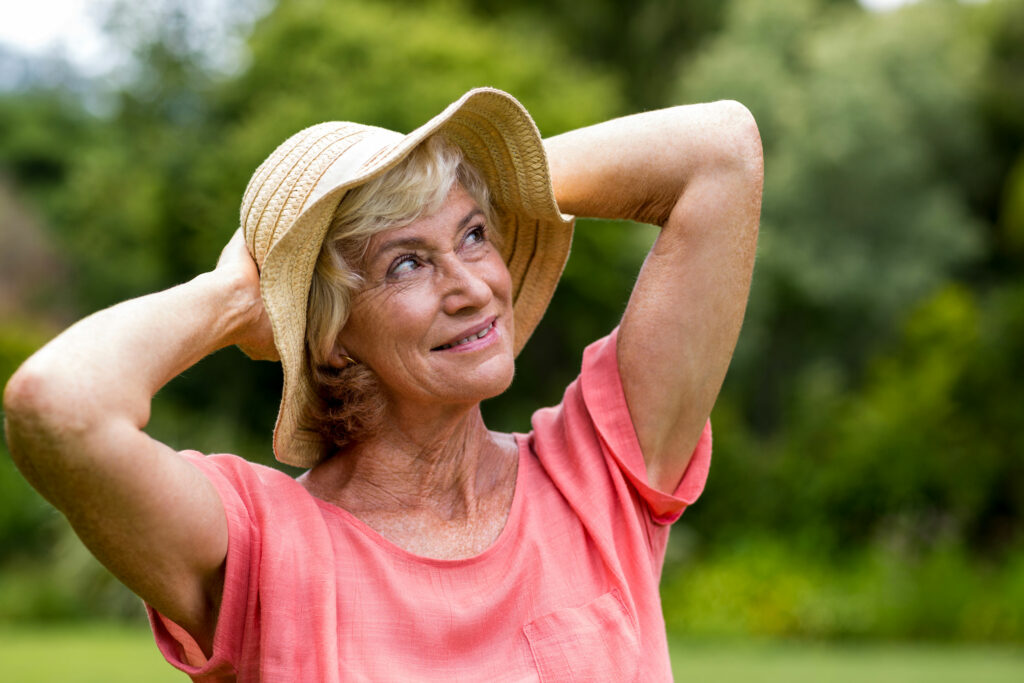Sun Safety for Seniors: How to Prevent Skin Cancer
According to the Skin Cancer Foundation, 1 in 5 adults will develop some form of skin cancer by the age of 70. The risk increases as you age because you accumulate more sun exposure and sun damage over time. Older adults tend to have more fragile skin and some medications may also cause the skin to be more sensitive to sunlight.
Repeated ultraviolet radiation exposure causes skin cell mutations, which can lead to skin cancer. The main types of skin cancer are basal cell carcinoma (BCC), squamous cell carcinoma (SCC), melanoma and Merkel cell carcinoma (MCC).
There are some easy precautions you can take while enjoying time outdoors to reduce the chances of skin cancer.
 Stay in the Shade
Stay in the Shade
Staying in the shade is one of the best ways to prevent UV exposure. UV light is strongest between 10 a.m. and 4 p.m., so staying out of direct sunlight during those hours is ideal.
Wear Sunscreen
Any time you are going to be out in the sun, be sure to wear sunscreen with an SPF of at least 30. Make sure the product you are using has broad spectrum protection against both UVA and UVB rays. Be sure to check the expiration date before applying the sunscreen. Sunscreen is usually good for 2 to 3 years.
You should apply sunscreen to all areas of the body where the skin will be exposed to the sun. Don’t forget to protect your lips by using lip balm with sunscreen. Sunscreen should be reapplied every two hours or more frequently if you are sweating or swimming, even if a sunscreen says it is ‘water resistant.’
Cover Your Eyes and Head
The face is a common location to develop skin cancer. It’s also possible to develop cancer in the eyes. When enjoying the sunshine, wear sunglasses and a wide-brimmed hat that protects your eyes, forehead, nose, scalp and ears.
Perform Monthly Skin Examinations
Early detection is key, so you should examine your skin once a month. If you see something new, changing or unusual, it is recommended to get it checked by a dermatologist right away. The look of skin cancer varies from person to person, but here is a gallery of some skin cancer examples. Finding and treating skin cancer early can save your life.
There is nothing quite like enjoying a warm, sunny day, so we hope these tips can help you or a loved one do so safely.
